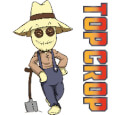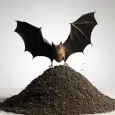Spannabis 2017. Transcript of the interview:
Txus / Alchimia :
We're here at Spannabis, in the World Cannabis Conferences. This afternoon, the Spanish Observatory of Medicinal Cannabis (OECM) has been presented by Guillermo Velasco, Carola Pérez and Mariano García de Palau. They are the managment team of the Observatory, so to speak: Carola is the president.
Ok, who wants to tell us a little bit about the Observatory, which are its main tasks, etc. Guillermo, for example...
Guillermo Velasco :
The Observatory is an entity formed, as I said before, by patients, physicians and researchers with a common interest, to push the use of therapeutical cannabinoids, especially in Spain.
We basically gather testimonies from patients who really need and use cannabis derivatives to treat their medical conditions.
Many times, because they don't have any alternative. From physicians who are really interested on treating patients with cannabinoids, and then, from researchers who somehow can provide scientifical evidence of the therepeutical properties of cannabinoids.
Then, we joined efforts thanks to Carola's initiative, who is the true alma mater of this project. It'd be impossible without her, she really encouraged us to act together to bring changes in our country.
Changes with regard to people having more knowledge on the medicinal properties of cannabinoids and how to use them, also to cause a legal change which truly allows patients to access medical marijuana legally, also cannabis-derived medicines.
Txus / Alchimia :
We're talking about three levels: researchers, patients and doctors...
Let's start with Carola, the president. She started with “Dos Emociones” (Two Emotions), which was a platform for medical marijuana users, right?
Carola Pérez :
Yes, we created the Association, although it is important to stress that we do not supply cannabis.
It's a project created with my parents, because if I had known cannabis before I'd probably have never needed 10 surgeries caused by neurostimulators. My parents said that if we could avoid people going through what I went through, we should tell patients about it.
Then, in “Dos Emociones” we advice and inform patients about their treatments.
We must not forget that patients are in a situation of legal insecurity, of sanitary insecurity, they're affraid and stigmatized, going through really serious situations.
I mean, they're not patients suffering from a headache, we're helping people to die, as Mariano can confirm, using it as a paliative.
Children who are terminally ill, with many...I was terminally ill so ”Dos Emociones” was born to help people know what is CBD, what is THC, how to use them, what dosages to use...
I didn't know about the endocannabinoid system, I didn't know what amount to vaporize... they may seem basic things, but most patients don't know about them.
We receive our patients, we explain them all that, they meet other patients...they're split into different pathologies, we meet... and from there we had the idea of taking a step forward. And how to do it?
Along with specialists and experts, who are physicians and researchers.
Txus / Alchimia :
You said that we didn't know about cannabinoids, about the endocannabinoid system, about dosages or vaping... exact, Sativas, Indicas...
Mariano, is the Spanish sanitary sector really aware of the endocannabinoid system and how it works?
Mariano García de Palau :
Absolutely. Remember that 4 or 5 years ago, we had a similar interview... 5 years later the endocannabinoid system is still not mentioned in the study program of the Universitat Central de Barcelona, where I studied medicine.
But things have changed a lot during these years. Cannabis science has evolved significantly during the past years, as Carola mentioned before.
CBD is a molecule that has only been used lately, for 4-5 years, and despite we had it at hand for a long time we didn't know about it...so we're just creating a base of knowledge which has to become the cornerstone of all future research.
Txus / Alchimia :
Exactly. On your presentation you told us that one of your main goals is to standarize products like oils, THC and CBD extracts, promote research, talk to physicians and doctors... there's a lot to do, both at scientific and outreach level.
Mariano García de Palau :
Of course, spreading this information is crucial. With Carola, Guillermo... everyone agrees that it would be great to have a global database, to be globally connected. Those who are working with cannabinoids, conducting research... these people are in constant contact.
On the contrary, physicians are not in contact, it seems that if you say certain things... in health issues, information belongs to all of us.
Private information on health issues is a crime. So it is very important to spread and share this info with sectors that don't know about it, that have the wrong information, and from that point everyone is free to read, study and choose.
I guess that's the bigger problem.
Txus / Alchimia :
We all know that this plant is stigmatized, and one of the goals of the Observatory is cannabis legalization, at least its therapeutical use.
Carola, you've been talking a lot lately with different political parties, you've been with them at the Congress. You've been with Ciudadanos to raise a Non-legislative motion. What's the feedback from politicians? Do you think this motion will progress in coming months?
Carola Pérez :
Well, the feedback is positive as long as you explain things clear. One of the things that we're learning is that politicians have no idea about this issue.
When you tell them that you need to vaporize certain type of plant to get certain effects, like getting some sleep or improve your mood, they start to understand. But it's very difficult if nobody tells them. At human level, we've seen politicians with tears in their eyes, who have realized about what's happening.
Also, the politician as a person and his political party have nothing to do. We're surprised because we see that this goes on, that we'll have to draft models and guides, that they didn't close the door in our face.
Txus / Alchimia :
That's great. How would that motion work in your imagination? In an ideal world...how do you think it should be carried out?
Guillermo Velasco :
Well, details are crucial here. The fact that they want to talk about it doesn't mean they're going to regulate it.
As we said, the ideal would be to regulate cannabis production, either by private companies or by the government. To have licensed people who could produce it and manufacture derivatives from it. For example, in Colorado ( USA ) you have diverse options of use depending on your purpose.
We need to know how it'd be distributed, either in drug stores or dispensaries. Will we have specialized shops, where patients with - or without – medical cards can get their medicine or their prescription? We must define all that.
Txus / Alchimia :
The proposal is simple. What are the basic aspects of the Motion raised at the Congress?
Carola Pérez :
We've presented four points. From standarization of the product to regulation of Cannabis and its derivatives. And now, we just have to... well the Observatory observes, right?
The most important thing is to see what happens in other countries and take the best of each one to develop our own model. But we're still in the yes/no debate. I mean, this is going to be a tough battle, we still have lots of meetings to do, and for the moment the first step would be to hear “Do you want free Sativex?” and to reply “No”.
We must break down this first wall, and then we'll be on the next stage, which is to study different models and see which one is the best for us.
Certain things that happen in Spain do not happen in other countries, everything is different and the Observatory just tries to go ahead and go on with our struggle.
We want the patient to be able to grow his plants, to go to a club or a dispensary or a pharmacy and get it, to be given a vaporizer instad of a neurotransmitter. Because a vaporier is a therapeutical tool for me. That is our model, but we have so many things in mind that we must stop and think about it, see what has happened in other countries, pros and cons, right?
We still have a lot to debate with ourselves and with politicians, because perhaps we end up getting more or less than we're demanding...
Txus / Alchimia :
I think we all feel hopeful that this will go on. We really hope, as well as you do, that the ideal scenario will soon come.
Thanks a lot Mariano, Guillermo and Carola, for sharing your time with us and best of luck with your project.
Carola Pérez :
Thank you for all your support.
Guillermo Velasco :
Thanks. Thanks a lot.
Txus / Alchimia :
One big hug Mariano...
Mariano García de Palau :
Thank you...as always !!

















































